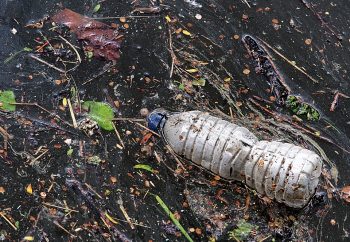
A new report on plastic waste published by the EU Plastics Strategy Commission reveals the need for “more complete and timely data”.
As The Parliament Magazine reveals, the Commission has published a new detailed report on plastic waste.
In this report, the Commission explains that, although plastic products “have brought benefits to society in terms of economic activity, jobs and quality of life” and “can even help reduce energy consumption and greenhouse gas emissions in many circumstances”, plastic waste “also imposes negative environmental externalities.”
This is due to the “usually non-biodegradable” nature of plastic waste, which means it remains in the environment “for a very long time” and “may pose risks to human health” as well as to the ecosystem.
In addition to outlining “trends” in the generation and management of plastic waste, the report also lays out “five policy options” which could help lessen the negative impact of plastic waste.
It reads, “Plastic waste generation is set to continue growing and the development of new materials continues apace. Bioplastics are growing extremely rapidly but from a very small base, and further research into life-cycle environmental impacts is needed.
“As for recycling, it is also expected to grow in absolute terms and innovate technologically, but it will not keep up on current trends and so other solutions are needed.”
The blend of policy options suggested by the report include “sustainable packaging guidelines (1); agricultural plastic recovery and recycling guidelines (2); waste electrical and electronic equipment (WEEE) and automotive plastic waste targets (3); recycled plastics and bioplastics phasing targets (4) and research innovation on the reduction of plastic waste (5).”
The first, second and fourth of these policy options are designated as “the most appropriate and effective”, but the Commission also stated that, whatever policies are implemented, “more complete and timely data on plastics generation and waste is also needed to help policy makers to respond effectively. Better information would also aid the design of consumer awareness campaigns regarding appropriate use and disposal of plastics and bioplastics.”
“Achieving these objectives will require collective involvement from all stakeholders and action at all stages, from design to consumption and waste management,” said a Commission spokesman.




















